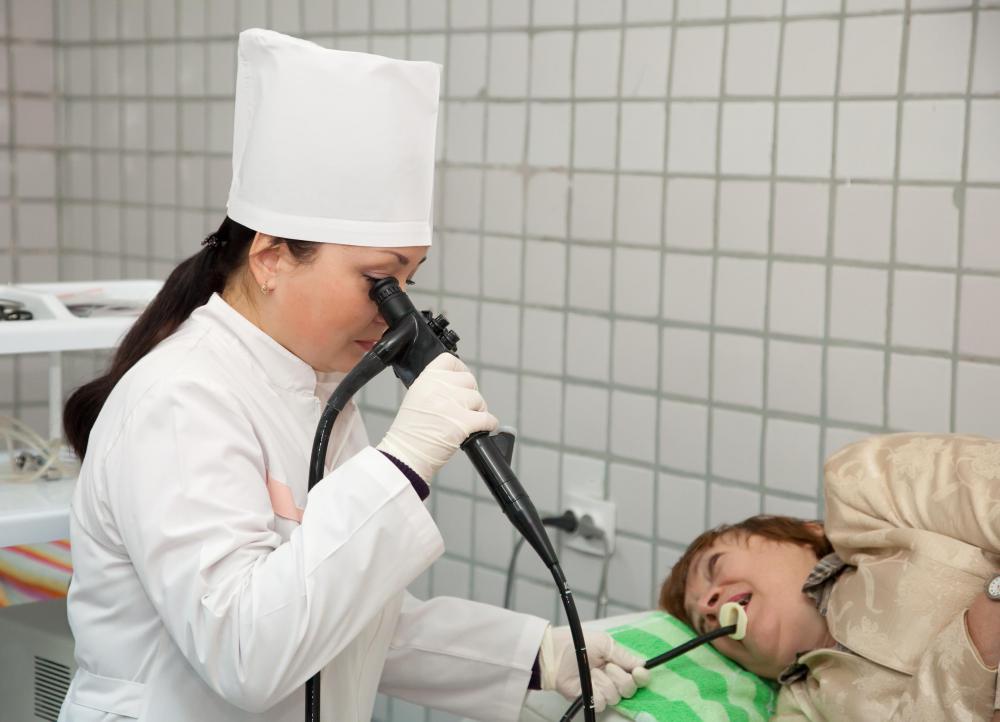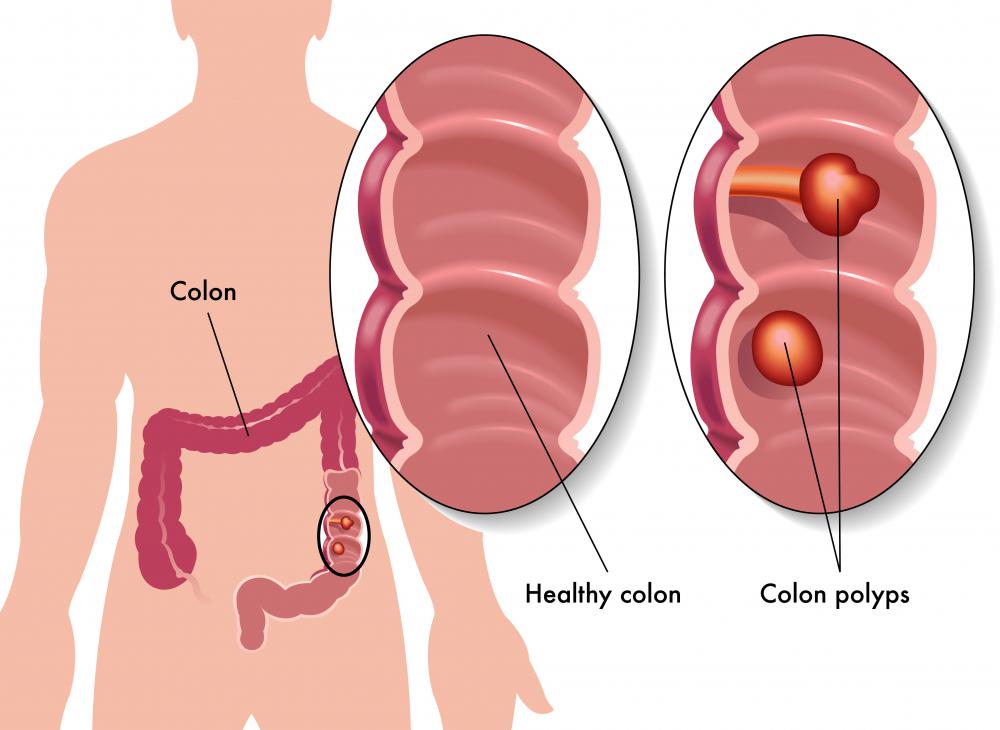At PracticalAdultInsights, we're committed to delivering accurate, trustworthy information. Our expert-authored content is rigorously fact-checked and sourced from credible authorities. Discover how we uphold the highest standards in providing you with reliable knowledge.
What is a Gastroenterologist?
A gastroenterologist is a doctor who specializes in treating the digestive system. When patients experience problems with the gallbladder, stomach, intestines, or pancreas, they often visit a gastroenterologist in order to receive medical treatment. People who wish to go into this career field are required to complete four years of medical school plus a three-year internal medicine residency. They must then successfully complete a two- to four-year fellowship in this field.
A fellowship in this particular field is an intensive program where a prospective gastroenterologist learns from experienced doctors specializing in problems of the digestive tract. Under the supervision of experienced gastroenterologists, the future specialist learns how to diagnose digestive diseases, treat a variety of medical problems, and teach patients how to prevent digestive diseases.

After completing a fellowship, the future gastroenterologist is considered board eligible. This means that the physician can take a gastroenterology board certification test. The test is administered by the American Board of Internal Medicine. Upon passing the exam, the physician becomes a board certified gastroenterologist.
Gastroenterologists must understand how the body digests food, how it absorbs nutrients, and how wastes are removed from the system. They are required to treat common ailments such as irritable bowel syndrome (IBS), gallbladder disease, ulcers, cancer, colitis, colon polyps, heartburn, and other conditions linked to the digestive system.

Patients of a gastroenterologist may sometimes have to submit to tests designed to examine the organs of the digestive tract. Two common tests used are the endoscopy and the colonoscopy. An endoscopy is a procedure that uses a long, flexible tube. A tiny video camera and light is attached to the tube. The gastroenterologist then guides the tube inside the upper digestive system in order to conduct a thorough examination.

A colonoscopy is used by the doctor in order to examine the interior of the large intestine. It is commonly used to diagnose colorectal cancer. The doctor uses a colonoscope, a long, flexible tube with a video camera and light attached. By using this instrument, the gastroenterologist can study the colon and rectum. The instrument allows the doctor to check for the presence of cancer, polyps, or inflammation.

Other tests used by this type of doctor include newer procedures such as a capsule endoscopy or CT colonography. A capsule endoscopy requires that the patient swallows a tiny camera so that pictures can be taken of the GI tract. A CT colonography permits the doctor to study radiological images of the patient's colon in order to screen for cancer or polyps.
AS FEATURED ON:
AS FEATURED ON:



















Discussion Comments
@pleonasm - Let's not forget the fact that gastroenterology is becoming more popular with patients that want to have their stomachs stapled or other similar kinds of surgery.
I've heard that top gastroenterologists are often booked up for months in advance for surgeries and it can be impossible to even get in to see one.
So, it might well qualify for "superstar" status now, just because of the obesity epidemic.
People are concerned with their digestive systems more than they used to be.
@pastanaga - I can definitely see why the stomach and the organs around it would appeal to some people. Maybe they had a relative who suffered from a related illness and they decided to study it themselves. Maybe they are fascinated by the digestive process.
It is pretty amazing that we manage to turn food stuffs into our own energy and cells. It's a complex process that could appeal to lots of people who feel a calling to be a doctor.
Or maybe they got to a certain point in their residency and had a mentor who was a gastroenterologist specialist and they got a lot of experience in that. I imagine, since it isn't such a superstar area, that people who go into it are much in demand. Maybe it was simply a matter of job security.
Life can take us in unusual ways. I'm sure they didn't start out as kids saying that's what they wanted to be, but you know, I'm not a vet or a firefighter either now.
I often wonder how people end up with this kind of specialty. I can see the attraction of "super star" type systems like the brain or the cardiac system, and I can see the appeal of things like pediatrics.
But I doubt any kid wants to be a gastroenterologist when they grow up. I don't think it's a bad thing to be, far from it. It just seems like such a specific course to take, particularly when it must mean so much study on a particular subject.
I just wonder how it happens that someone decides they want to spend their life operating on stomachs.
Post your comments